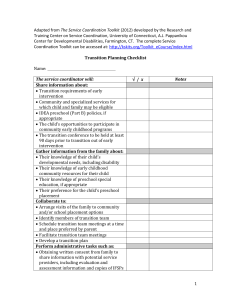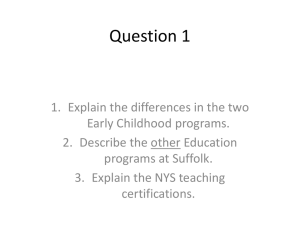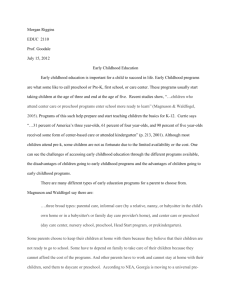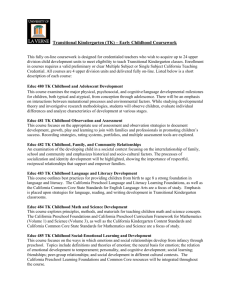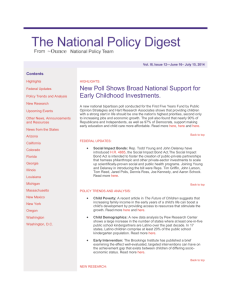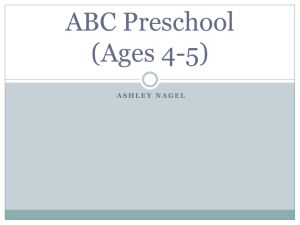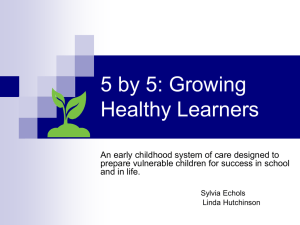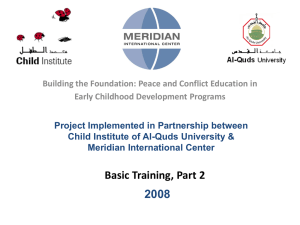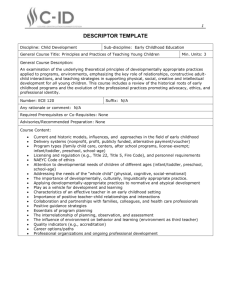Quirindi Preschool Kindergarten Inc
advertisement
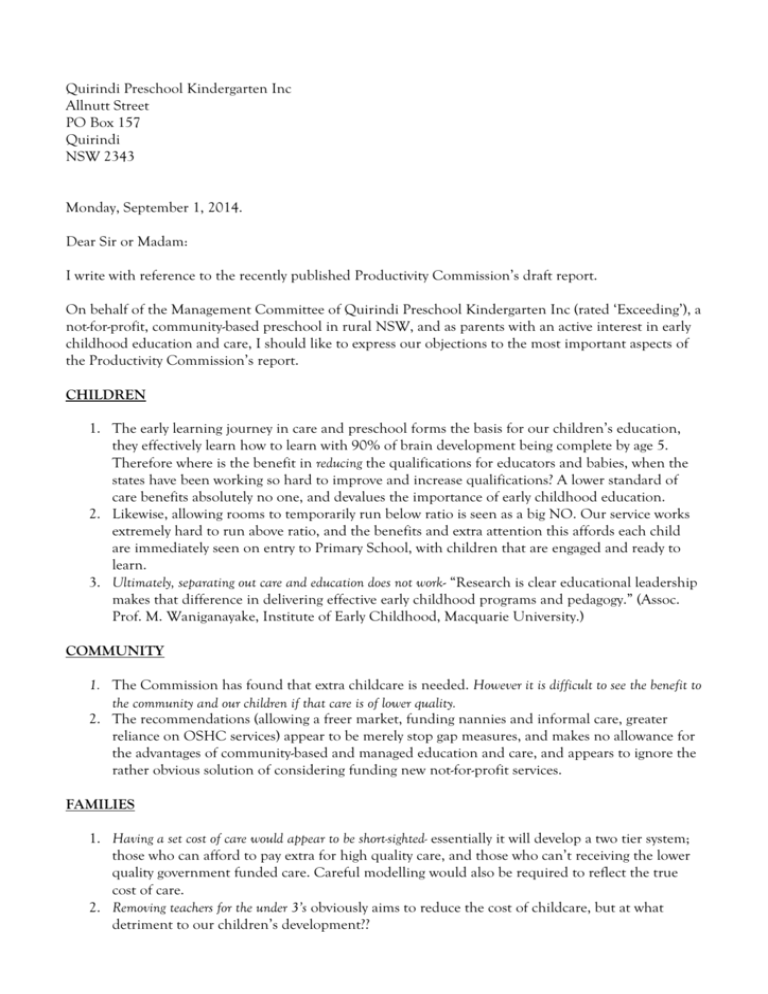
Quirindi Preschool Kindergarten Inc Allnutt Street PO Box 157 Quirindi NSW 2343 Monday, September 1, 2014. Dear Sir or Madam: I write with reference to the recently published Productivity Commission’s draft report. On behalf of the Management Committee of Quirindi Preschool Kindergarten Inc (rated ‘Exceeding’), a not-for-profit, community-based preschool in rural NSW, and as parents with an active interest in early childhood education and care, I should like to express our objections to the most important aspects of the Productivity Commission’s report. CHILDREN 1. The early learning journey in care and preschool forms the basis for our children’s education, they effectively learn how to learn with 90% of brain development being complete by age 5. Therefore where is the benefit in reducing the qualifications for educators and babies, when the states have been working so hard to improve and increase qualifications? A lower standard of care benefits absolutely no one, and devalues the importance of early childhood education. 2. Likewise, allowing rooms to temporarily run below ratio is seen as a big NO. Our service works extremely hard to run above ratio, and the benefits and extra attention this affords each child are immediately seen on entry to Primary School, with children that are engaged and ready to learn. 3. Ultimately, separating out care and education does not work- “Research is clear educational leadership makes that difference in delivering effective early childhood programs and pedagogy.” (Assoc. Prof. M. Waniganayake, Institute of Early Childhood, Macquarie University.) COMMUNITY 1. The Commission has found that extra childcare is needed. However it is difficult to see the benefit to the community and our children if that care is of lower quality. 2. The recommendations (allowing a freer market, funding nannies and informal care, greater reliance on OSHC services) appear to be merely stop gap measures, and makes no allowance for the advantages of community-based and managed education and care, and appears to ignore the rather obvious solution of considering funding new not-for-profit services. FAMILIES 1. Having a set cost of care would appear to be short-sighted- essentially it will develop a two tier system; those who can afford to pay extra for high quality care, and those who can’t receiving the lower quality government funded care. Careful modelling would also be required to reflect the true cost of care. 2. Removing teachers for the under 3’s obviously aims to reduce the cost of childcare, but at what detriment to our children’s development?? SERVICES 1. Early education services have been working extremely hard over the last number of years to comply with the robust standards of the NQF, and indeed our own preschool and many others will have benefited from this structured approach. To suggest removing and weakening the NQF through simplification would be a step backwards. The recommendations regarding preschools are exceptionally difficult for NSW community- based preschools. The commission should be supporting the amazing work these community not-for-profit preschools do, where there is no pressure to ‘make money’, which is itself a conflict of interests, because of course the fewer staff you employ the more money you make, instead of encouraging lower staffing ratios and therefore the predictable slump in quality of care. It is disappointing to see that the Commission apparently fails to understand the fundamental importance of high staffing ratios, highly educated staff, and a strong structured framework to guide the early childhood education and care sector. These standards are internationally recognised as having immense benefits to the children who receive them. Why should Australia take a step backwards, as the rest of the developed world moves forwards? Please consider our objections, and reconsider the Productivity Commission’s Draft Report. Yours Faithfully, Charmiane Frith (President, Management Committee, Quirindi Preschool Kindergarten Inc)


